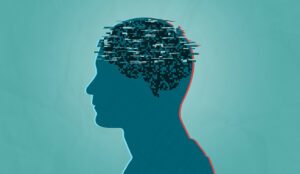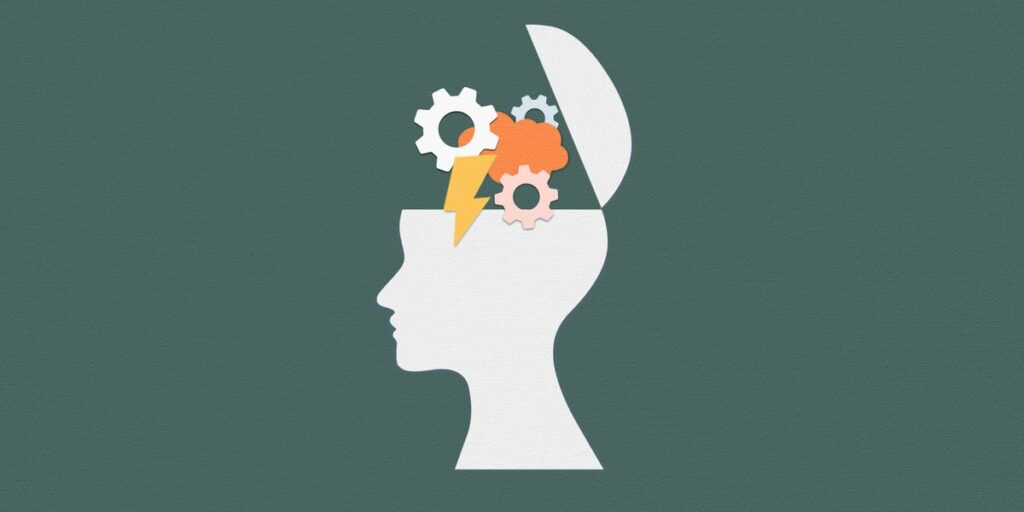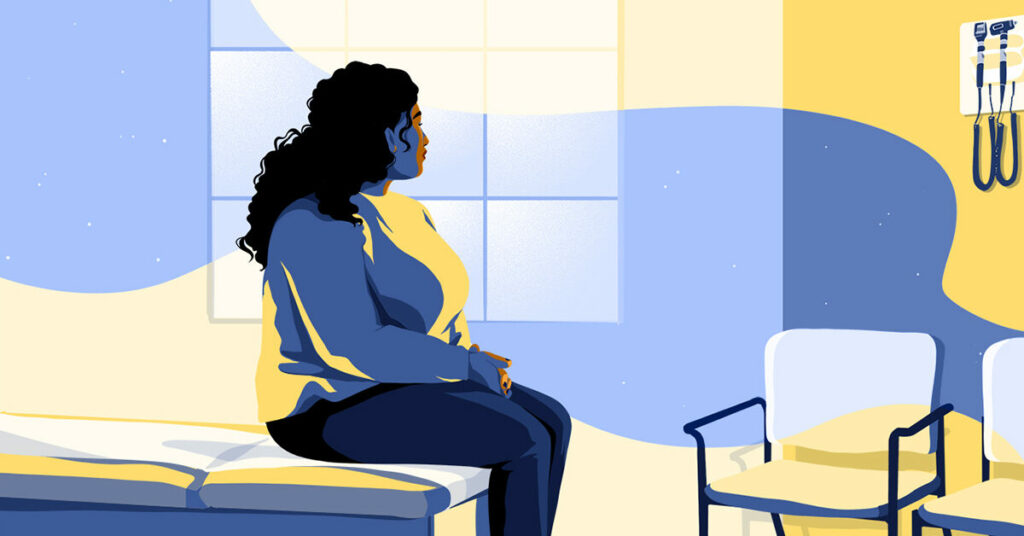Medical PTSD is a little-known condition that can occur in healthcare professionals who witness or experience traumatic events. It’s estimated that up to 33% of healthcare professionals may suffer from it, but due to the lack of awareness, many cases go undiagnosed. In this blog post, we will discuss what medical PTSD is, its symptoms, and how you can get help if you think you may be suffering from it.
Contents
What Is Medical PTSD?

Medical PTSD is a type of post-traumatic stress disorder that can occur in healthcare professionals. It is a reaction to cumulative exposure to traumatic events experienced while working in the medical field. These events can include witnessing death or injury, caring for critically ill or dying patients, being the victim of violence, or experiencing a near-death experience.
Symptoms of medical PTSD can include intrusive thoughts and memories of the event, avoidance of anything that reminds you of the event, negative changes in your mood and thinking, and feeling constantly on edge. If you are experiencing any of these symptoms, it’s important to seek help from a mental health professional.
Medical PTSD can be a very isolating experience. You may feel like you are the only one going through it, but you are not alone. There is help available, and you can get better.
Signs of Medical PTSD

There are many signs of medical PTSD. Some people may experience one or two of these signs, while others may experience several. The most common signs include:
Intrusive Thoughts or Memories
This can involve reliving the traumatic event over and over again in your mind. You may also have intrusive thoughts about other medical procedures or treatments you’ve experienced. These intrusive thoughts can be disturbing and make it hard to concentrate or focus on anything else. Also, you may try to avoid thinking about the event or activities that remind you of it.
Avoidance Behaviors
You may start avoiding people, places, or things that remind you of the traumatic event. For example, you may avoid medical appointments or refuse to see certain doctors or nurses. You may also avoid talking about the event or your feelings about it.
Changes in Mood and Emotions
You may feel numb, disconnected, or detached from other people and the world around you. You may also have trouble experiencing positive emotions like happiness, love, or joy. Other common changes in mood include feeling irritable, angry, anxious, or depressed. You may also have sudden outbursts of anger.
Changes in Physical and Mental Health
You may have physical health problems, such as headaches, stomachaches, or trouble sleeping. Also, You may experience mental health problems, such as anxiety, depression, or post-traumatic stress disorder (PTSD). You may also have difficulty concentrating or memory problems.
Changes In Behavior
You may start using alcohol or drugs to cope with your symptoms. Also, You may engage in risky behaviors, such as driving recklessly or having unsafe sex. You may also withdraw from friends and family or stop participating in activities you once enjoyed.
Constant Vigilance and Fear
You may be constantly on guard, feeling like you need to protect yourself at all times. Also, You may be easily startled or have a hard time concentrating. You may also feel like you’re in danger even when you’re not. Sometimes, people with medical PTSD may re-experience the trauma through nightmares or flashbacks. These can be very upsetting and make it hard to function in day-to-day life.
These are some of the signs of medical PTSD. If you’re experiencing any of these symptoms, it’s important to seek help from a mental health professional. They can help you develop coping strategies and provide support.
Causes of Medical PTSD

Many factors can contribute to developing medical PTSD. Some of these include:
Traumatic Event
One of the most common causes of medical PTSD is a traumatic event. This can be something like surgery, a car accident, or a natural disaster. It can also be something more subtle, such as a long-term illness or a difficult childbirth. Also, some medical procedures are more likely to cause PTSD, such as surgery where there is a lot of blood or a procedure that is very painful.
Personal History
Your personal history can also play a role in whether or not you develop medical PTSD. If you have a history of anxiety or depression, you’re more likely to develop PTSD after a traumatic event. Also, if you’ve experienced other traumas in your life, such as sexual abuse or combat, you’re more likely to develop PTSD. Personal history can be a risk factor even if the current trauma is less severe than previous ones.
Abuse
An abusive relationship can also be a risk factor for medical PTSD. If you’re in a relationship where you feel unsafe or like you’re constantly being hurt, you’re more likely to develop PTSD after a traumatic event. Sometimes, the trauma can be related to the abuse, such as if you’re injured during an abusive incident. Other times, the trauma can be unrelated, such as if you witness a violent event.
Lack of Social Support
Another risk factor for medical PTSD is a lack of social support. If you don’t have people in your life who can offer emotional support, you’re more likely to develop PTSD after a traumatic event. This is because social support can help you process and make sense of what happened. It can also provide practical help, such as with transportation or child care.
Unresolved Grief
If you’ve experienced a loss and haven’t had time to grieve, you may be at risk for medical PTSD. This is because unresolved grief can make it harder to deal with a new trauma. When you’re grieving, you may already feel overwhelmed and like you can’t handle anything else. If you experience a traumatic event on top of that, it can be too much to cope with.
Stigma
There is still a lot of stigma around mental illness, which can prevent people from seeking help. This is especially true for medical professionals, who may feel like they need to be perfect and never show any weakness. This can make it hard for them to admit that they’re struggling and need help.
These are some of the causes of medical PTSD. It’s important to remember that everyone experiences trauma differently. Some people may develop PTSD after a mild trauma, while others may not develop it after a severe one. There is no “right” or “wrong” way to react to trauma.
Can Medical PTSD Impact Someone’s Lives?

The impact of medical PTSD can vary from person to person. For some, the condition may have little effect on their lives. Others may find that their symptoms significantly interfere with work, school, and personal relationships.
Some of these impacts are:
Work
One of the most common impacts of medical PTSD is difficulty at work. People with medical PTSD may have trouble concentrating or completing tasks. They may also feel constantly on edge, which can make it hard to interact with co-workers. In some cases, people with medical PTSD may avoid certain situations or people at work out of fear of triggering their symptoms. Also, flashbacks or intrusive thoughts about the traumatic event may make it hard to focus on work tasks.
School
Medical PTSD can also interfere with a person’s ability to succeed in school. The condition may make it hard to concentrate or remember information. In some cases, people with medical PTSD may avoid going to school altogether. These symptoms can lead to falling behind in class or even dropping out of school.
Personal Relationships
Medical PTSD can also take a toll on personal relationships. The condition may make it hard to trust people or be around them. In some cases, people with medical PTSD may avoid social situations altogether. This can make it hard to maintain friendships and romantic relationships.
Medical PTSD can be a very isolating condition. The symptoms can make it hard to connect with others and participate in activities that were once enjoyed. However, treatment is available.
Suicidal Thoughts
This impact of medical PTSD is not as common, but it’s important to be aware of. People with medical PTSD may have thoughts of suicide or self-harm. If you have these thoughts, it’s important to get help from a mental health professional right away.
Diagnosing Medical PTSD
One of the most difficult things about medical PTSD is that it can be hard to diagnose. Many people who experience it don’t even realize they have it, and doctors often don’t think to look for it. This can be especially true if you’ve never been through a traumatic event before.
Some of the diagnosis methods are:
A review of your medical history
One of the main indicators of medical PTSD is a change in your mental state after a medical event. If you’ve never had any problems with anxiety or depression, but suddenly start experiencing these things after a traumatic event, it may be an indication that you have PTSD.
An MRI or CT scan may be ordered to rule out any physical causes of your symptoms.
A psychological evaluation
This will likely involve a clinical interview and questionnaires. The goal is to get a better understanding of your mental state and how the event has affected you.
Many self-tests can be found online, but it’s important to remember that only a professional can give you a diagnosis. If you think you may have PTSD, the best thing to do is to talk to your doctor.
How Can Medical PTSD Be Treated?
If you think you might have medical PTSD, it’s important to see a mental health professional. He or she can diagnose the condition and develop a treatment plan. Treatment for medical PTSD may include:
Cognitive-Behavioral Therapy
Cognitive-behavioral therapy (CBT) is a type of therapy that can help people with medical PTSD manage their symptoms. CBT can involve exposure therapy, which gradually exposes a person to the memories and thoughts that trigger their symptoms. This exposure can help reduce the symptoms of PTSD.
Medication
Several medications can be used to treat the symptoms of medical PTSD. These include antidepressants, anti-anxiety medications, and antipsychotics. The best medication for you will depend on your symptoms.
Eye movement desensitization and reprocessing (EMDR)
EMDR is a type of therapy that uses eye movements to help people process and manage their memories. This therapy can help reduce the symptoms of PTSD.
How Can I Prevent Medical PTSD?

Unfortunately, there’s no sure way to prevent medical PTSD. However, there are things you can do to reduce your risk:
Try To Stay Calm
If you can stay calm during and after a traumatic event, it may help reduce your risk of developing PTSD. However, This may be difficult, but it’s important to try. Sometimes, just taking a few deep breaths can help.
Get Support
If you’re going through a traumatic event, it’s important to get support from family and friends. This support can help you through tough times and may reduce your risk of developing PTSD.
Talk To Someone
If you’re having trouble dealing with a traumatic event, talking to a therapist or counselor can be helpful. He or she can provide you with tools and resources to help you cope.
Join A Support Group
There are many support groups available for people who have been through trauma. These groups can provide you with emotional support and practical advice.
Have Patience
A traumatic event can take a toll on your mental and emotional state. It’s important to be patient with yourself as you heal.
These are some of the tips which can help in reducing the risk of developing PTSD.
Conclusion
Medical PTSD is a very real condition that can have a profound impact on the lives of those who experience it. It is important to be aware of the symptoms and to seek help if you think you may be suffering from PTSD. If you are a medical professional, it is also important to be aware of the signs and symptoms of PTSD in your patients so that you can provide the best possible care.
Hope this article was of help to you! If you are suffering from mental health disorders, you may seek help from Therapy Mantra. We have a team of highly trained and experienced therapists who can provide you with the tools and skills necessary for overcoming mental health disorders. Contact us today to schedule an online therapy or download our free Android or iOS app for more information.


